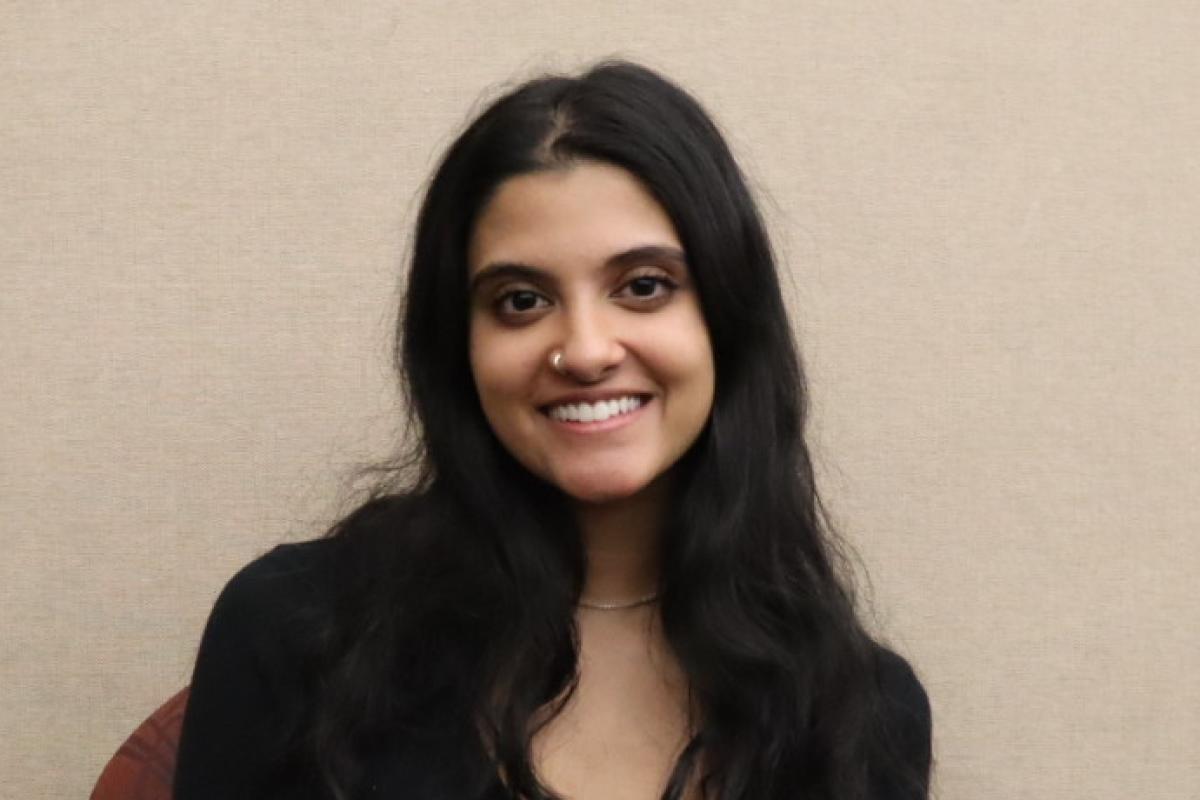Last summer, Nitya Upadrasta used skills she honed in Pozen courses to help develop possible changes to human rights ordinance right here in Cook County.
Upadrasta worked at the county’s Department of Human Rights and Ethics, supported by a $5,000 flexible Pozen center internship grant. There, she was tasked with writing a policy memo comparing how other jurisdictions, from the United Nations to states across the country, have approached human rights initiatives that are relevant to the department's goals.
Talking about human rights with people in a context outside the classroom has a real immediacy. Because you’re talking directly to individuals, hearing about their lives. It’s not an exercise.
“The work was similar to a lot of the research and writing I did in my human rights courses, comparing rights from place to place and community to community,” says Upadrasta, a human rights minor with a double major in business economics and public policy. “But knowing it was going to play a part in a real public policy process made it extra meaningful.”
Making Human Rights Concrete
Upadrasta was also sent out into neighborhoods across the South Side to do outreach, talking with constituents about the human rights guaranteed to them as county residents. Here, too, she found the jump from theory to practice exhilarating.
“Talking about human rights with people in a context outside the classroom has a real immediacy,” she says. “Because you’re talking directly to individuals, hearing about their lives. It’s not an exercise.”
Upadrasta especially enjoyed talking with groups of landlords about their responsibilities to tenants under the fair housing provisions of the Human Rights Ordinance. “It’s a cool challenge to talk about a rights issue with people who aren’t necessarily agreeing by default, who are coming in more skeptically. And that’s enhanced my knowledge of how rights play out in reality,” she says.
Professional Path Inspiration
Upadrasta arrived at Chicago already knowing she wanted to go to law school, and committed to majors in business economics and public policy. But then she took her first human rights course, “The Rights of Immigrants and Refugees in Practice.” As a child of immigrants, she was fascinated by human rights as a way to understand how other immigrant communities’ stories compared to her own. Almost right away, she knew she wanted to become a human rights minor.
While she’s always been interested in immigration law, her internship experience has her wondering about different possible paths in the legal profession, like public interest law, civil litigation, employment litigation, or housing law.
“Housing is such a tangible issue,” she says. “It’s a necessity, and the impact shows up right away in people’s lives. Rights can sometimes feel like an abstract idea, but there’s nothing abstract about having a safe place to live.”
- Learn more about Pozen Center internships, which provide $5,000 grants for human rights work in the field.
- Read about becoming a human rights major or minor.

